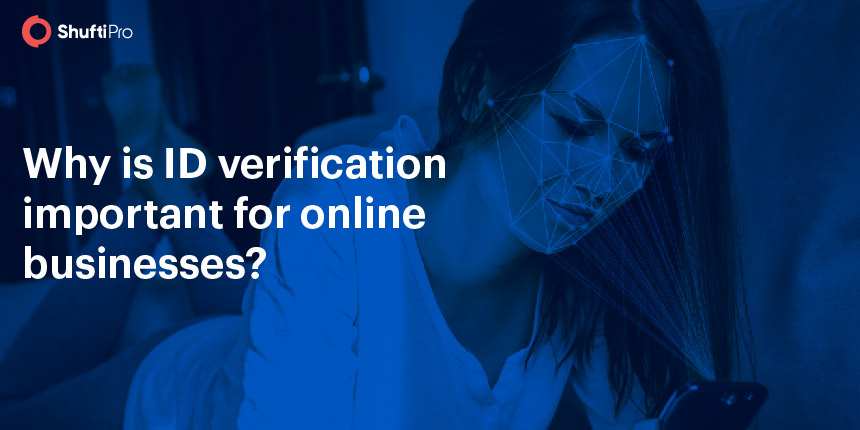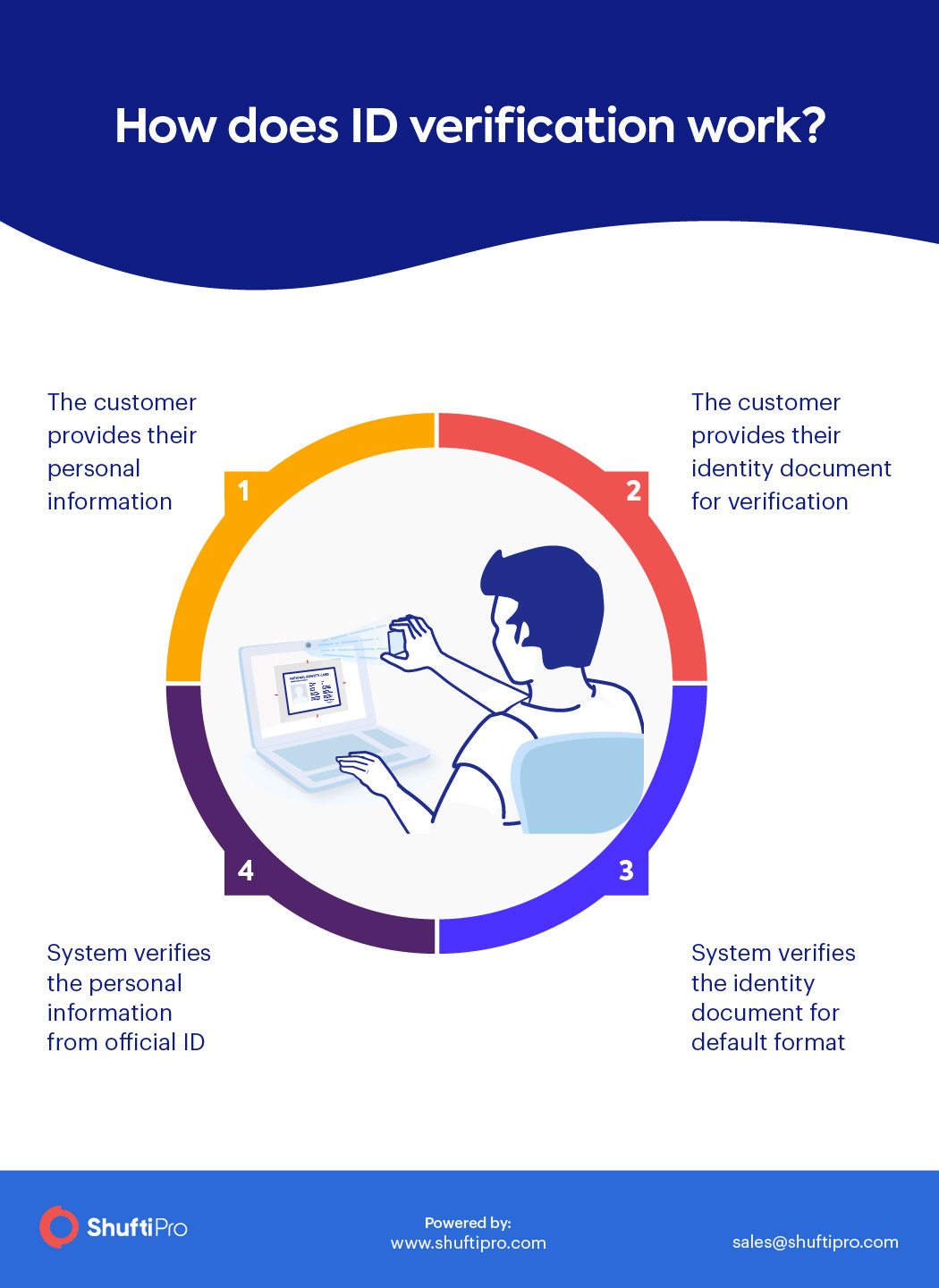How ID Verification Helps in Fighting Digital Scams?

ID VERIFICATION: Digital scams are common phenomena and it affects all types of businesses in every corner of the world. Research states that 76% of businesses reported being the victim of a digital scam in 2017. Most common scams are, fake identities, data breaches, credit card fraud and account takeover fraud, and as per IBM, the estimated cost of a data breach is $3.86 million.
Online businesses have been the victims of various types of fraud which cause financial and non-financial damage. The financial losses include loss of profit, penalties and extra expenses incurred for fraud management. Non-financial loss includes the loss of credit rating, customer value, and competitive edge of the company.
Fraudsters are always in search of advanced methods to defraud businesses. The regulatory compliances have been amended in response to these multi-facet frauds happening globally. KYC and AML compliance is an integral part of the businesses these days. Digital KYC backed by AI-based solutions is the ultimate digital risk prevention used by online businesses worldwide.
How online businesses are defrauded?
Credit Card Frauds
Online businesses are exposed to credit card fraud just because they accept online card payments. It could happen in different ways, most common are card-not-present(CNP), friendly fraud, lost and stolen card and counterfeit card fraud.
According to a survey of Insurance Information Institute (III), more than 40% of the stolen identities in 2018 in the USA were used to commit credit card fraud. These frauds caused the loss of millions of dollars to businesses.
Account Takeover Fraud
The account credentials of a genuine customer are stolen to carry out illegal transactions. This fraud happens often in the financial and fintech sector where money launderers and fraudsters steal account credentials of a client to transfer funds to suspicious accounts. At times account takeover is conducted for monetary gain but most of the time it is conducted with the intention to transfer funds anonymously to terrorists and criminals.
Such frauds cause a financial loss in two major forms. Firstly, the business bears loss when it makes a refund to a customer whose account was used illegally. Secondly, major loss occurs in the form of penalties and loss of credibility that occur due to non-compliance of businesses with KYC and AML regimes.
So, to prevent monetary loss online businesses are introducing digital KYC and AML screening solutions into their systems.
Fake Identities
According to the Insurance Information Institute (III), 3 million identities were stolen in the USA in 2018 and most of these were used to defraud businesses. Stolen identities are sold on the dark web to commit frauds and crimes, targeting businesses, government organizations, and even non-profit organizations.
Fake identity fraud is committed using fake or stolen ID cards and other identity documents.
Common frauds and crimes committed with fake identities are account opening for illegal funds transfer, buying age-restricted goods, money laundering, terrorist financing, etc.
Often the fake identities of merchants are used to conduct business with credible entities. Shell companies’ owners hide behind stolen identities to conduct business. Later financial proceeds are manipulated to incorporate black money within the legal proceeds of the businesses. Digital ID Verification and AML compliance solutions mitigate fraud and loss of revenue.
Data Breaches
Data is a vital asset for any company. Businesses make profits by selling confidential data of their customers to third parties. That is why data protection regulations like GDPR (General Data Protection Regulations) and CCPA (California Consumer Privacy Act) were introduced to protect the privacy of individuals.
Data breaches are a common fraud with businesses causing losses of worth millions of dollars. In the digital era, online businesses have big data that they utilize for revenue generation and improving online customer experience. Hackers steal the credentials of an employee and use them for gaining illegal access to confidential data. Data breaches target business from many angles and use several channels.
System hacking
Collaboration software are used in companies for communication among teams. Such software are also used for data transfer which is often confidential and could harm the company if a competitor or a hacker gets access to that data.
B2B relations
The businesses are selling the confidential data of their customers to make huge profits, and such data is shared and used under the strict scrutiny of regional regimes and in-house protocols. Scammers are aware of the importance of data and they often exploit the loopholes in the business models of the businesses and steals the confidential data.
Recent Equifax data breach is a befitting example here. Equifax had the data of many individuals and business entities, which has been compromised in the database. Now the compromised data will harm the businesses that were in a B2B relation with Equifax.
Huge damage could happen due to these data breaches. Frauds and losses entailing them could be prevented if online businesses and organizations of all types use digital identity verification tools before allowing access to databases. Biometric authentication, ID verification are feasible solutions for preventing data breaches.
How ID verification is the Savior that you need?
ID verification is very crucial for online businesses to prevent fraud and losses These solutions screen each and every client that tries to penetrate your online portal, a website or an app, etc.
Below is an infographic that describes how identity verification will not only prevent fraud but will be a source of value and profit generation.

Digital identity verification has more than just fraud prevention for online businesses. It helps businesses in building strong and trustworthy relations with their clients and merchants. On the other hand regulatory compliance is made easy and seamless and helps in value generation for the company.
How Digital identity verification works?
Digital identity verification is a seamless process that verifies the identity of individuals within 30 to 60 seconds. Shufti’s unrivaled identity proofing solution gathers information from an ID card or other identity documents in real-time and matches it with the information entered by the end-user.
Also to add up to the security, end-users ID verification is conducted and matched with the image on an ID card. On the other hand, documents are scanned for default format and forged information.
The detailed screening of documents and information provided by the end-users eliminates fraud at the very first stage.
Below is a graphical representation of Shufti’s ID verification process.
To wrap up, online businesses have huge growth potential so is their exposure towards cybercrimes. Digital identity verification is the ultimate fraud prevention solution for online businesses to reduce their fraud losses and to improve profits.
KYC and AML compliance is inevitable. Shufti helps you to do it efficiently by providing customized solutions that suit your cost and compliance needs. Every business is a separate entity, its compliance and security needs are unique as well. Therefore plan your customized identity verification solution with Shufti today to stay one step ahead of fraudsters and your competitors.

 Explore Now
Explore Now














